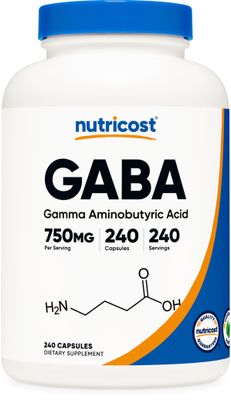NatureBell Vitamin K Complex, K1 + K2 (MK-7 & MK-4) 2,600mcg Per Serving, 300 Coconut Oil Softgels | Max Absorption - Full Spectrum K Vitamins Supplement | Heart & Bone Support | Non-GMO
SKU: B0C6WWZ61Y
Subscribe & Save 13%
Ships from USA | Delivery within 8-12 Business Days
Make a one-time purchase or subscribe and save:
Estimated delivery time
Ships from USA | Delivery within 7–9 days
In stock
Add item to your Wishlist
Customer reviews
Reviews only from verified customers
No reviews yet. You can buy this product and be the first to leave a review.
NatureBell Vitamin K Complex, K1 + K2 (MK-7 & MK-4) 2,600mcg Per Serving, 300 Coconut Oil Softgels | Max Absorption - Full Spectrum K Vitamins Supplement | Heart & Bone Support | Non-GMO
Product Details
Brand: Naturebell
Product Type: Blended Vitamin & Mineral Supplements
UPC | EAN: 850040861532
Description
Vitamin K, initially discovered in 1929, is a group of fat-soluble vitamins instrumental in various biological processes. The name "K" originates from the German term "Koagulationsvitamin," reflecting its crucial role in heart health. Vitamin K comes in two natural forms: K1 (phylloquinone), predominantly found in leafy green vegetables, and K2 (menaquinone), primarily in fermented foods and some animal-sourced foods. The human body uses Vitamin K for regulating calcium levels in the blood* and bones. Moreover, by assisting in the production of proteins regulating bone mineralization, it effectively supports bone health as well.
Features
- Complete vitamin K complex softgels, 3 in 1 full spectrum formula with K1 and K2 as MK4 and MK7, infused with coconut oil to help absorb vitamin Ks fat-soluble nutrients.
- 300 coconut oil softgels, 2 softgel serving size, delivers 1,500mcg K1 as phytonadione with 1,000mcg K2 as menatetrenone (MK4) and 100mcg menaquinone (MK7) per dose, lasts up to a 150-day supply.
- Enjoy easily digested and absorbed full K vitamin benefits, supports heart, joint, bone, and immune health, as well as calcium absorption in both men and women.
- Replenish natural vitamin K levels with NatureBells complete vitamin K complex, combining all forms helps with overall nutrient uptake and minimizes waste.
- Authentic non-GMO K vitamin supplements. Contains pure ingredients free of soy, dairy, gluten, preservatives, wheat, eggs, fish, and peanuts. All products are also 3rd party lab tested for safety and potency.
You May Also Like
Subscribe & Save 7%

One A Day Mens Multivitamin Gummies, Multivitamin for Men with Vitamin A, C, D, E, Calcium & More To Support Healthy Muscle Function, Gummies, 80 Count
One A Day Mens Multivitamin Gummies, Multivitamin for Men with Vitamin A, C, D, E, Calcium & More To Support Healthy Muscle Function, Gummies, 80 Count
AED 89

BulkSupplements.com Celery Seed Extract Powder - Celery Seed Supplement, Celery Seed Powder - Herbal Supplement, Gluten Free, 1000mg per Serving, 1kg (2.2 lbs) (Pack of 1)
BulkSupplements.com Celery Seed Extract Powder - Celery Seed Supplement, Celery Seed Powder - Herbal Supplement, Gluten Free, 1000mg per Serving, 1kg (2.2 lbs) (Pack of 1)
AED 350

Del-Immune V Defense by Stellar Biotics, All-Natural Immune Support & Gut Health (+) Immediate Care, Metabiotic: NextGen Probiotic Therapy (60 Caps)
Del-Immune V Defense by Stellar Biotics, All-Natural Immune Support & Gut Health (+) Immediate Care, Metabiotic: NextGen Probiotic Therapy (60 Caps)
AED 411

Beekeeper's Naturals - 100% Raw Bee Pollen Granules, Natural Preserved Enzymes, Source of Vitamin B, Minerals, Amino Acids & Protein - Paleo & Keto Friendly, Gluten Free (5.2 oz)
Beekeeper's Naturals - 100% Raw Bee Pollen Granules, Natural Preserved Enzymes, Source of Vitamin B, Minerals, Amino Acids & Protein - Paleo & Keto Friendly, Gluten Free (5.2 oz)
AED 218
Display prices in:AED









